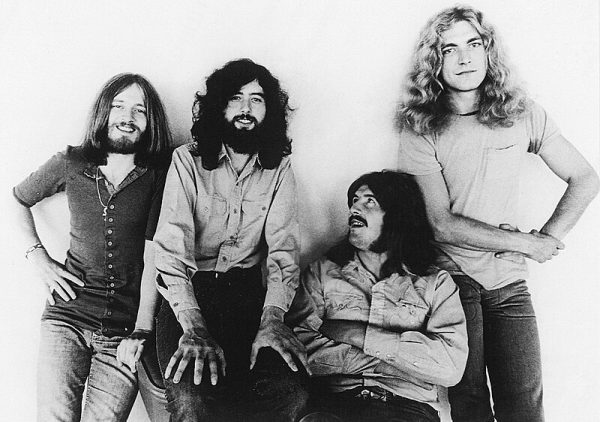Why You Should Read Classic Books
Mark Twain once stated that a “‘Classic [is] a book which people praise and don’t read.” If that statement was true in Twain’s 19th century, it’s an apt description of today’s views on “old books” and “classics”. We need to be reading a variety of literature, contemporary and old-school. I’d like to make a case for why you should read these books and why they are an invaluable insight into our society and humanity.
5 reasons why you should read that “old book” with the tiny type on your mom’s bookshelf:
1. Challenge is good. Remember that elementary school mantra? Growth mindset! Challenge yourself and read an older book. If you need a dictionary with you or end up reading the abridged version, that’s all right. The point is to challenge yourself and expose yourself to a good story and new ways of thinking, writing and speaking.
2. It’s just good literature! The diction and syntax, the way the author crafts their story, are often so much richer than today’s horror novels and graphic novels. Many of the books that everyone has heard of, Ivanhoe, Pride and Prejudice, Tom Sawyer, etc, are still in circulation because they are well-written and timeless. Humor, plot twists, suspense, emotion, and satire. While many of these books are written in a different style than today, that doesn’t mean they aren’t worth a try. And I promise you that while some older books can be a little tough to chew, they are well worth the effort and you will walk away with something new to think about or a different way of seeing an issue in your life or in the world.
3. A third reason why you should read an older book is, to borrow Carl Sagan’s words, “One glance at a book and you hear the voice of another person, perhaps someone dead for 1,000 years. To read is to voyage through time.” Just like biographies or textbooks can give us a peek into times past, books can do that in a much more engaging and accurate way- after all, you’re reading what a person who lived in that time period wrote. Their stories, words, and descriptions let us have a peek into their world, with all of its societal norms, fashions, world views, philosophies, and opinions. Even if you’re reading one of Jules Verne’s fantasy books, you’ll still see his opinions and assumptions about how the world and humans work shaping the story.
Many of the authors of these classic books were, in their own way, rebels. Charlotte Bronte and her sisters were refused by many publishers because they were female authors but they ended up writing quite a few well known books like Jane Eyre and Wuthering Heights. Writers such as Harriet Beecher Stowe and Fredrick Douglas (a freed slave!) were well loved and hated for their writings on slavery during the mid-1800’s. And Charles Dickens’ A Christmas Carol changed how upper-crust London society viewed the poor and working classes in their city.
4. Wisdom isn’t merely having knowledge, but knowing when and how to use it. It’s not something that’s learned through a textbook or a few TikTok videos, but through experience and by example. Descartes, the French enlightenment philosopher, said, “the reading of all good books is like conversation with the finest people of the past centuries.” Reading books, old and new, can teach us a lot about people, ourselves, and our world. I think that old books that have stood the test of time have a unique quality and insight and can often teach us lessons that aren’t always emphasized in today’s society. Some of those lessons about things such as sacrificial love, dignity, integrity, and selflessness are sorely needed in our generation. These characteristics, or lack of them, are what make a good character!
5. It’s hilarious (Oscar Wilde’s plays!). While humor changes over the course of time, books and people and situations will always be amusing. Whether it’s Sir Percy acting like a brainless chicken in Baroness Orczy’s The Scarlet Pimpernel, Robin Hood’s cronies making fun of the Sheriff of Nottingham, or Jane Austen’s infamous Mr. and Mrs. Bennet, you can usually find some humor in a book even if you have to search for it.
Reading good books, and lots of them will make you a better writer, thinker, and a valuable contributor to society. It’s okay if you don’t agree with the author’s opinions or life choices. It’s okay if they’re outdated. It’s okay if you hate the book. It’s okay to read content that may be completely contrary to your beliefs or to today’s norms. You may come across writing that our society would categorize as racist, sexist, or plain nonsense (for example, a character stating that the earth is flat). Just because you read it does not mean you have to approve of it or that it is right. In fact, you’re putting that oft-quoted mantra “have an open mind” into practice by thinking about something new and disagreeable. I’d argue that reading and thinking about that content is more valuable than ignoring it, because it does exist. When you come across content like that, stop for a moment and ask yourself,
a) Why did this author write this? What were his/her beliefs?
b) What belief systems, social norms, or world events contributed to this author’s belief? (a quick Google search can give you some context)
c) Why do I disagree? Back up your claim with persuasive reasons and evidence!
In some cases, you may get through a book and realize maybe you’re the one who needs to change your mind about something.
Something to keep in mind, just because you don’t like something doesn’t mean you can’t appreciate it. Jane Austen’s main character in her book Emma drives me nuts, but I can still enjoy Jane Austen’s writing and character development skills. I don’t particularly enjoy the fantasy genre, but I can still appreciate the Harry Potter book series for JK Rowling’s themes, writing, plot, and creativity. Contemporary books can have many of the same valuable pieces, they can feel relevant, and teach lessons. Some of my favorite books were written in the last 20 years. However, some of my favorite books are also old. We need variety. Classic books are classics for a reason. If they’re still in print, they’ve got to have something worthwhile to them or else they wouldn’t be in circulation. So let’s take advantage of that and read them!
Personally, I love reading classic books. They transport me to another era and show me that my “original thoughts…aren’t very new after all” (Abraham Lincoln). Whatever we have today has been built upon centuries of laypeople, writers, philosophers, and scientists who thought and wrote about many of the same questions and issues that we face today. But to see that, you have to start digging into the stories, thoughts, and brains of those who came before us.
“Somebody who only reads newspapers and at best books of contemporary authors looks to me like an extremely near-sighted person who scorns eyeglasses. He is completely dependent on the prejudices and fashions of his times since he never gets to see or hear anything else.”
Albert Einstein
PS!
With the help of some friends and Highland Piper staff, I have compiled a list of books and authors to get you started! I’ve rated each book on difficulty and understandability. 1 is easy, 5 is difficult. I’ve tried to include a variety of books written pre-1950. Keep in mind that this is by no means a comprehensive list- there are so many more books out there!
Happy reading!
Little Women – 2. I’ve talked to a disturbing number of students who say they love Louisa May Alcott’s ‘Little Women’ or the character of Jo but have never actually read the book. Granted, there are a plethora of film adaptations. But if you enjoyed the movie, isn’t that the best reason to read the book?
Oscar Wilde’s plays – 3. Great Expectations may not be your cup of tea- it’s not mine. But have you ever read Oscar Wilde’s plays? They’re typically comedic satire. They make fun of early 1900’s London society while being hilarious. Plots include trickery, double crossing, some romance, and mystery. And they’re usually about 200 pages, shortened down to 100 pages if you don’t count the stage notes. Try reading The Importance of Being Ernest.
Sherlock Holmes by Arthur Conan Doyle – 2. If you’re a fan of mystery or if you’ve seen either Enola Holmes film, but haven’t read any Sherlock Holmes mysteries, you’re missing out! Most Sherlock Holmes books are actually collections of short stories written for newspapers and magazines and are perfect for reading on the go. This moody, spontaneous, brilliant detective and his biographer, Watson, are great companions on rainy days.
Jane Austen’s books may seem old-fashioned, boring, sweet, tame… Except they’re not. Runaway sisters, horror and thrills, drama, romance, mystery, women rebelling against societal norms, it’s all there. Austen’s books are funny, satirical, sometimes slow and infuriating (I’m looking at you, Emma), but rewarding. Austen has a way of letting you into the character’s heads and lives without overwhelming you with details. While Emma and Pride and Prejudice are classics, I highly recommend reading some of Austen’s lesser known books such as Persuasion and Northanger Abbey, which are shorter reads and easier to understand. Another tip for reading Jane Austen’s books: Watch a movie adaptation and then read the book!
Daddy-Long-Legs by Jean Webster – 2. The funny and sometimes bittersweet tale of Jerusha (Judy) Abbot, an orphan girl who goes to college to become a writer. She writes humorous, matter-of-fact letters to her mysterious benefactor. French students will appreciate Judy’s snippets of ‘Franglais’ in her letters.
Agatha Christie – 1. Christie is widely celebrated as “the Queen of Mystery,” having written at least 68 published novels spanning her 4- year career. Her mysteries are fantastic- and they’re by no means boring with lots of corpses and suspense and thinking involved. Read mysteries starring Hercule Poirot, Miss Marple, Tommy and Tuppence, and a host of other characters. Christie’s own autobiography is also very interesting- this lady did everything!
Robin Hood, Tom Sawyer, David Copperfield, Ivanhoe, and others may be stereotyped as elementary school books, but they are fantastic and should be read! If you already know the story from a movie, then the book should be even more enjoyable as you learn more about the characters and the authors.
1984 and Animal Farm by George Orwell – 1984 is on my “to-read” list. While it’s come highly recommended, friends have also told me that it’s a dry but “fascinating and thought-provoking read, full of insights into the society that is still applicable today.”
The Three Musketeers and The Count of Monte Cristo by Alexandre Dumas – 4. Dumas’s books are famously long and dense. Dumas was the son of a French nobleman and an African slave. A friend recommended having a sheet of paper to keep track of characters and plot twists, and maybe even reading a summary of the book so you know what’s happening.
“Despite the enormous quantity of books, how few people read! And if one reads profitably, one would realize how much stupid stuff the vulgar herd is content to swallow every day.”
-Voltaire (French Enlightenment writer, historian, and philosopher)





